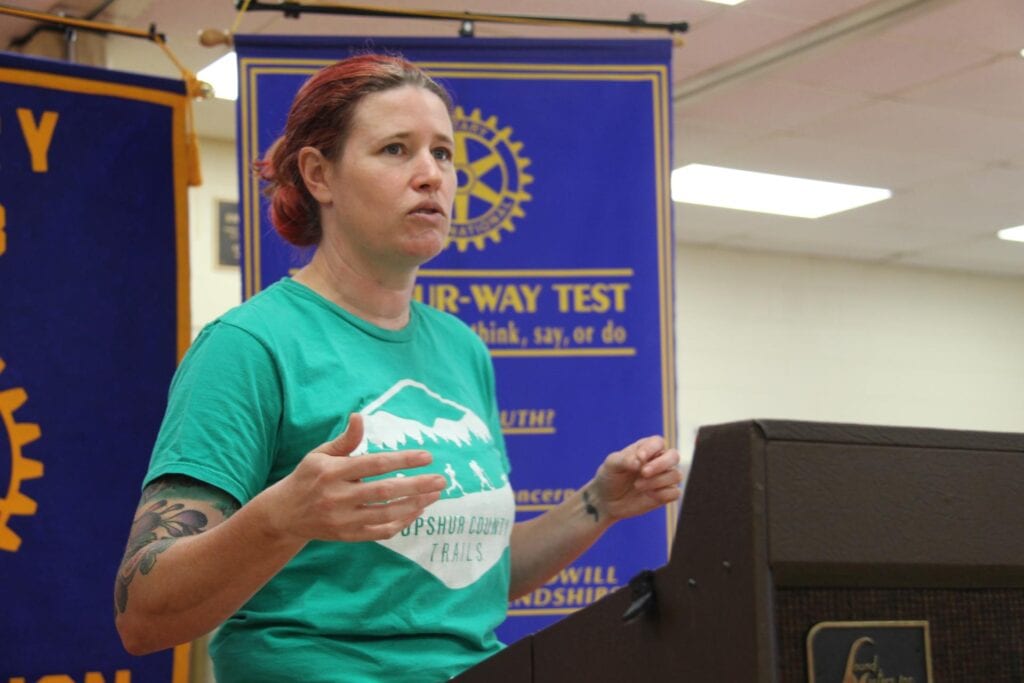BUCKHANNON — In recent days, the autumn air has wafted back into the Mountain State, and already, some folks are facing a notorious culprit that often blows through with the brisk temperatures — the flu.
The flu is considered a contagious respiratory illness caused by influenza viruses — influenza A and B — that strikes millions of Americans each year. That’s why Peggy Cohen, a nurse with WVU Medicine St. Joseph’s Hospital, says the sooner you get the flu shot, the better.
According to Cohen, director of infection control at St. Joseph’s Hospital, flu season happens sporadically, and there is no way to predict when the community will be hit.
“We’ve actually already had some positive influenza swabs, and we’ve already had an in-patient with the flu,” said Cohen, noting flu season hasn’t peaked yet in the area. “But it just varies from year to year. Sometimes we don’t see much until November or December when it peaks and sometimes it’s earlier.”
Aside from aches and pains, other flu symptoms include fever, runny nose, sore throat, fatigue and headaches.
The Centers for Disease Control also indicates that flu activity is currently low in the United States; however, flu season is fast-approaching.
Though Upshur County hasn’t seen reached peak flu season yet, Cohen said residents should start receiving their flu vaccines now, as it is the best way to prevent getting the flu.
“The Centers for Disease Control also recommends that patients start receiving vaccines now,” she said.
According to a press release from St. Joseph’s Hospital earlier this month, opting to receive the vaccine sooner rather than later is important because it allows time for antibodies to develop in the body and protect a person against the flu.
In fact, for up to two weeks after receiving the shot, folks are still at risk for getting the flu.
“That’s why it’s better to get vaccinated early in the fall, so people are protected before flu begins spreading in their communities,” the release notes.
For those skeptical about receiving the vaccine, Cohen notes that the vaccines help lessen the severity of the flu.
“A lot of patients, especially our elderly population and the pediatric population, a lot of times they’ll end up as in-patient in the hospital because of the virus, but it seems to be they will recover better than patients who have not received the flu vaccine,” she said.
Cohen said she strongly suggests that anyone over 65 years old, young children, pregnant women and those with certain health conditions (diabetes, cancer, asthma, etc.) receive the flu vaccine.
Since the flu spreads through droplets as close as six feet away, Cohen said it’s important to cover your mouth and nose when coughing and sneezing to prevent the spreading of the virus.
To learn more about influenza and benefits of receiving the flu vaccine, click here.
Doctors throughout WVU Medicine St. Joseph’s Hospital, the Upshur-Buckhannon Health Department and pharmacies are offering flu shots now.
The hospital hosted a free lunch on Friday at which pediatrician Dr. LaWanna Starks presented a program titled, “Keeping your children healthy during cold and flu season.”
















